The DUP, Sinn Féin, UUP, SDLP, Alliance Party, Traditional Unionist Voice, Green Party, UKIP, The Workers' Party, People Before Profit Alliance, Socialist Party and the BNP are all running candidates in the Assembly Elections.
We look at the history of each of the parties.
Democratic Unionist Party
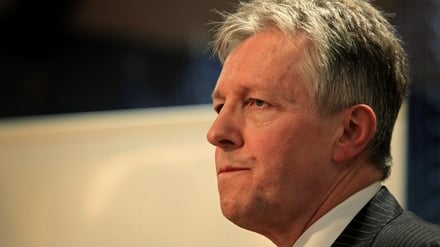
The DUP is a supporter of the maintenance of Northern Ireland as part of the United Kingdom and a consistent supporter of a devolved government for Northern Ireland.
The party has a generally conservative stance on social and economic issues.
Founded by Rev Dr Ian Paisley in 1970 after his election to Westminster, the party has traditionally represented a more reactionary Ulster unionism, with Mr Paisley's often-repeated slogan of 'No Surrender' underlining the DUP's conservative tendencies.
From the beginning of the peace process in the mid-1990s, the DUP generally followed a policy of obstruction and opposition.
This policy resulted in a long period of growth in their electoral support and their eventual replacement of the UUP as the largest Unionist party.
However, this success brought new challenges for the party. In 2007, the party of Protestant protest became the party of government, sharing power with Sinn Féin.
Agreement on power-sharing, for so long anathema to the party, ensured Ian Paisley's elevation to the position of Northern Ireland First Minster.
The obvious comfort that Mr Paisley displayed in office and the ease of relationship with Sinn Féin's Deputy First Minister Martin McGuinness rankled with many in his party and eventually precipitated his departure from politics.
Ian Paisley stepped down as First Minister in June 2008, to be replaced by Peter Robinson, who adopted a more detached relationship with his deputy first minister.
The Robinson approach to power-sharing with Sinn Féin added to tensions within the power-sharing executive and led to political stalemate.
This was only broken in March 2010 when, in the wake of a family crisis and public scandal affecting Mr Robinson and his wife, Iris, the DUP was moved to reach agreement with Sinn Féin on the completion of devolution – namely, the transfer of policing and justice powers.
Speaking in the Assembly on the day it voted to endorse the transfer of these powers, Peter Robinson declared: 'Throughout history there are times of challenge and defining moments. This is such a time. This is such a moment.'
However, Peter Robinson himself then became the only real victim of the electorate's displeasure with the party's stance on the issue and its involvement in the various scandals when he lost his Westminster seat in 2010.
He now leads the party into the 2011 Assembly Elections intent on reversing the losses in vote share suffered in 2010 and remaining the dominant party in the Stormont Assembly.
At its campaign launch, Mr Robinson stressed the danger of voter apathy, and the party is also talking up the danger of Sinn Féin becoming the largest party in the Assembly.
The party's campaign focuses on job creation, tougher sentences to tackle crime, and reform of the Assembly structures to ensure the office of the First Minister is held by a Unionist.
The party has also engaged in a bitter dispute with the rival UUP over cancer services and the future of the health service in Northern Ireland.
The party is running 44 candidates in the 18 constituencies, the largest number of candidates of any of the parties.
Sinn Féin
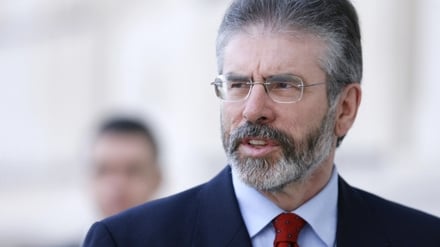
Modern Sinn Féin claims lineage with the party established by Arthur Griffith in 1905, and which took an active part in the struggle for Irish independence between 1918 and 1921.
However, the current Sinn Féin party evolved from a split in the republican movement in the early 1970s.
Throughout that decade, the party was marginalised in political terms because of its support for the Provisional IRA and it was not until the electoral success of Bobby Sands - while on hunger strike in 1981 - that Sinn Féin's party leadership recognised the importance of the political apparatus.
Sinn Féin's publicity director Danny Morrison described his party's electoral strategy as one 'with an Armalite in one hand and the ballot box in the other.'
The party's embrace of electoral politics and the continued IRA ceasefire have led to sustained political gains for the party in Northern Ireland elections since the start of the peace process in the 1990s.
While the party is well-known for its republican views, it is also a left-wing party with strong views on social and economic issues.
Sinn Féin is running 40 candidates in the 2011 Assembly elections.
At the party's campaign launch, Gerry Adams stressed that Sinn Féin was committed to continued participation in the political process irrespective of the actions of 'unrepresentative groups' - like those involved in the murder of PSNI officer Ronan Kerr.
The party is standing on its record of practical achievement in the Executive and has also indicated it will put pressure on Northern Ireland's banks to sponsor a £400m job creation fund.
In a bid to halt any recovery by the SDLP, the party is also stressing the fact that Sinn Féin's success in the General Election in the Republic earlier this year, when it had 14 TDs elected, make it the only credible All-Ireland party.
The party is now hoping to become the largest party in the Assembly in terms of seats, an achievement that would bring increased influence in the NI Executive and the prospect of controlling the First Minister's office for the first time.
Ulster Unionist Party
The Ulster Unionist Party is the oldest, and was traditionally the dominant, party of unionism in Northern Ireland.
Between 1922 and the end of the old Stormont Parliament in 1972, the party provided all six Prime Ministers of Northern Ireland.
The UUP historically represented a quite conservative presence in Ulster Unionism, but in the 1990s the party moved towards a more flexible position.
After 1995, under the leadership of David Trimble, the UUP was central to the peace process and negotiated with both the SDLP and Sinn Féin.
From the beginning, the UUP was internally divided, initially on whether to enter negotiations with Sinn Féin, and then over whether to do business in the Assembly with Sinn Féin in the absence of a complete decommissioning of the IRA arsenal.
Despite this tension, the party's involvement was crucial to the advancement of the peace process (and gained David Trimble a Nobel Peace Prize in 1998), but the political cost of that involvement was high.
The party's willingness to persevere with the process left it open to damaging criticism from more conservative elements within Unionism and allowed the DUP to outflank the UUP and become the pre-eminent voice of Unionism.
The Ulster Unionist Party enters the 2011 Assembly campaign having returned to its traditional name and organisation following its unsuccessful involvement in UCUNF (Ulster Conservative and Unionist New Force) for the 2010 Westminster Election.
The alliance of the UUP with the Conservatives was aimed at giving voters a chance to move away from the sectarian structure of Ulster politics and play a role in the next UK government.
However, the realities of Northern Ireland politics meant that this aim was compromised before it even began, and UCUNF endured a disjointed and unsuccessful election.
In the end the UUP was left with no Westminster seats, as its sole outgoing MP Sylvia Hermon left the party in protest at the UCUNF alliance.
The party was led into the alliance by Reg Empey, but he resigned on 22 September 2010.
Tom Elliott, an MLA for Fermanagh and South Tyrone, won the subsequent leadership election, and now faces the difficult task of rebuilding a party in which internal divisions over policy, and the party's relationships with other parties, have become serious issues.
With internal tension still besetting the party, and the DUP, the Alliance and TUV all fighting for the various strands of the Unionist vote, the UUP faces a very difficult election in 2011.
The party is running 29 candidates in 17 of the 18 constituencies, but has no candidates in the Foyle constituency.
It has put education reform and an end to the impasse on testing at the forefront of its campaign.
SDLP
From its foundation in 1970 until the Westminster elections of 2001, the SDLP served as the dominant vehicle of political expression for the nationalist community of Northern Ireland.
The party was left-leaning in social and economic terms, but its rejection of the armed struggle clearly separated it from the also left-wing Sinn Féin.
Gerry Fitt initially led the party, but in 1979 John Hume replaced him on his election as the party's first MEP.
Mr Hume was elected to Westminster in 1983 and was joined by his party colleagues Seamus Mallon in 1986 and Eddie McGrady in 1987.
The party was the voice of mainstream nationalist opinion in Northern Ireland during the 1980s and early 1990s and had a crucial role in the development of the Peace Process.
However, since the IRA ceasefire the party has struggled to maintain its position in the face of Sinn Féin's electoral advances.
As the older generation of SDLP leaders retires, the challenge for the party has been to re-establish itself as a realistic alternative to Sinn Féin in the nationalist community.
The party held its three seats relatively comfortably in the 2010 Westminster election, including an important victory for new party leader Margaret Ritchie in the South Down seat previously held by Eddy McGrady.
The SDLP has maintained a steady criticism of both Sinn Féin and the DUP since the 2010 Westminster election.
The party refused to support the recent Northern Ireland budget, which included widespread cutbacks, while the party's minister on the executive, Alex Attwood, has accused the DUP and Sinn Féin of effectively by-passing the other parties in the Executive.
The SDLP is running 28 candidates across the 18 constituencies and has highlighted the high proportion of new and young candidates among this group.
Margaret Ritchie has suggested that the SDLP is best placed to deliver new ideas and produce more cooperation in key areas like education, local government reform, and the issue of parades.
The party has also touted its progressive economic policy as a vote-winner.
Alliance Party
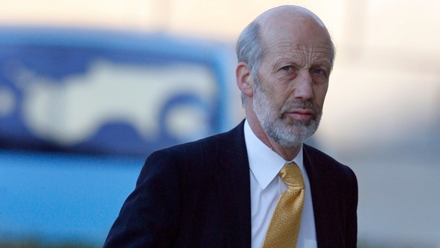
The Alliance Party was formed in April 1970 as an alternative to what founding member, Oliver Napier, described as the sectarian Ulster Unionist Party.
At the time, Mr Napier was confident Alliance would become the acceptable face of unionism in Northern Ireland.
The party is committed to non-sectarian politics and set out to attract those Catholics who were happy for Northern Ireland to remain part of the UK and unionists prepared to meet the political demands of the nationalist community.
The party has had mixed electoral fortunes since its foundation, and it found itself squeezed for the middle ground in Northern politics during the first phase of the Peace Process.
It has, however, enjoyed something of a revival in recent years.
The party was close to the centre of Northern Politics in the months leading up to the 2010 election.
Supporting the devolution of policing justice powers to Northern Ireland, its leader David Ford was subsequently elected – on 12 April, 2010 – as Northern Ireland's Justice Minister. He was a compromise cross-community candidate for the new role after separate unionist and nationalist candidates were voted down.
The success of the 2010 Westminster campaign is still buoying the party. The party grew its vote share to 6.3% and gained its first elected MP through Naomi Long's shock defeat of DUP leader Peter Robinson in Belfast East in those Westminster elections.
The Alliance campaign for 2011 is centred on the idea of change, with the party stressing the key role it has taken in leading the change towards a political system based on consent and power-sharing; integrated education, and a police and justice system accepted by the community.
The party is running a record number of 22 candidates and has candidates in all 18 constituencies.
Traditional Unionist Voice
The Traditional Unionist Voice is the creation of former DUP MEP Jim Allister, who left the DUP in December 2007 in opposition to the party's agreement with Sinn Féin, which, he claimed, put 'unrepentant terrorists' at the heart of government.
The TUV's core principles are a commitment to the union with Britain and support for devolution, but with a rejection of the mandatory coalition model which allows Sinn Féin in government.
The party also advocates a generally conservative or traditional approach to social issues.
After its creation, the TUV succeeded in attracting supporters, including some councillors, from the ranks of disaffected unionists within the DUP and elsewhere. However, in the 2009 European elections, Mr Allister failed to hold onto the European Parliament seat he had won for the DUP in 2004.
The party is running 12 candidates in the 2011 Assembly election.
The TUV is basing its campaign on the idea that the Assembly needs to be completely reformed to allow for a genuine opposition who can vote the Executive out of office if necessary.
It is also hoping to capitalise on the electorate's unhappiness with the Executive's performance in education, healthcare and water supplies.
Green Party
The Green Party of Northern Ireland is a part of the wider Green movement in the Republic and is also linked to the Green Parties of the UK and Europe.
However, unlike its Irish colleagues, it has yet to make a major impact on politics in Northern Ireland.
The party has made some progress in recent years though: in the Northern Ireland Local Elections of 2005 it had its first real electoral breakthrough - getting three candidates elected as councillors on a 1% vote share.
In the 2007 Assembly elections, the party's 13 candidates achieved a 1.7% vote share, and secured its first Assembly seat.
The Green Party campaign for 2011 has been weakened by the decision of the party's sole MLA, Brian Wilson, not to contest his North Down constituency.
The party's new leader, Steven Agnew, will seek to hold the seat for the party. The party is running six candidates in total in these elections.
United Kingdom Independence Party
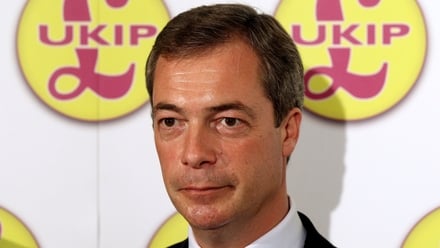
The UKIP was founded in London on 3 September 1994 by members of the Anti-Federalist League, which ran candidates opposed to the Maastricht Treaty in the 1992 General Election.
The party advocates Britain's withdrawal from the EU on the grounds that Brussels has assumed excessive control over political decision making at the expense of national governments.
UKIP also advocates more stringent immigration and asylum laws and has a generally free-trade approach to economic issues.
The UKIP's first official election was the 1994 European election where it fielded 24 candidates and secured 157,000 votes.
Following a successful 2004 European election, UKIP contested 497 seats and won a total of 610,000 votes in the 2005 Westminster election, but did not secure a parliamentary seat.
In January 2007, the defection of former Conservatives Lord Pearson and Lord Willoughby de Broke to the UKIP gave the party its first representation in the House of Lords.
In the 2009 European Election, UKIP gained 16.5% of the vote. The party increased its number of MEPs from 12 to 13, giving the party the same number of representatives as Labour.
The party fielded 572 candidates in the 2010 general election under the campaign slogan 'Straight talking', in an attempt to tap into the mood of disillusionment with mainstream parties after the expenses scandal.
The party polled over one million votes across the UK, just over 3% of the total, but again failed to secure a Westminster seat.
The party is led by Nigel Farage MEP.
The party ran one candidate in Northern Ireland in the 2007 Assembly election – former UUP Councillor Henry Reilly, who took 1,229 votes in South Down.
Mr Reilly is currently the party's only councillor in Northern Ireland. UKIP did not run any candidates in Northern Ireland in the 2010 Westminster election, but is running six candidates in 2011.
Progressive Unionist Party
The Progressive Unionist Party was formed in 1979 drawing its support and leadership base from the loyalist working class.
It has historically had links with, but was not officially attached to, the paramilitary Ulster Volunteer Force.
Three of the PUP's most well-known figures - Gusty Spence, Billy Hutchinson and David Ervine - all served prison sentences for activities as members of the UVF.
During the early years of the peace process, the leadership of the PUP was instrumental in securing and maintaining the loyalist ceasefires.
While being a small cog in the unionist electoral machine, it did have considerable influence in the negotiations which led to the Good Friday Agreement. George Mitchell, the American Chair of the peace talks, stated that 'there is not a more impressive politician in Northern Ireland than David Ervine.'
However, after the Agreement the PUP's support waned and in 2003 its sole member elected to the Assembly was its leader, David Ervine.
In January 2007, Mr Ervine died suddenly and was replaced by Dawn Purvis.
Ms Purvis retained her seat in the Assembly for Belfast East in 2007, but the party suffered a serious blow when Dawn Purvis left the party to become an Independent in 2010.
The Progressive Unionist Party is a pro-Agreement Party and is a supporter of power-sharing in the Assembly and has been a strong advocate of demilitarisation of all paramilitary groupings.
The PUP is a working class based party and supports left wing, socialist policies but from a strong unionist perspective.
In 2011, the PUP is running Brian Ervine, brother of the late David Ervine, in Belfast East. The party is also running a number of candidates in the local elections in 2011.
The Workers' Party
The Workers' Party of Ireland is a small left-wing party which has its roots in the split within Sinn Féin after the 1970 Sinn Féin Ard Fheis. Initially known as 'Official Sinn Féin', its paramilitary wing was the 'Official IRA' and it went on ceasefire in May 1972.
The party changed its name to 'Sinn Fein – the Workers' Party' in 1977 and became The Workers' Party in 1982.
By the end of that decade it had seven TDs in the Dáil, but did not enjoy the same electoral success in Northern Ireland.
Then, in 1992, six of the party's seven TDs left, eventually forming Democratic Left and then merging with the Labour Party in 1999.
The split devastated the party and it lost its remaining TD in the Republic, Tomás MacGiolla, in the 1992 General Election.
The party was further damaged in the 1990s by a number of splits in its Northern membership, with some of its Belfast and Newry-based personnel leaving to form the Official Republican Movement.
The central aim of policy of the Workers' Party is to change the political, economic and social structure of both states in Ireland and to establish a democratic, secular, socialist republic which would include the entire island of Ireland.
The Workers' Party supported the Good Friday Agreement and the re-establishment of the Northern Ireland Assembly, with the belief that, in conditions of peace, new political allegiances would flourish.
The party has not been successful in elections in recent years, gaining just 0.25% of the vote in the 1998 Assembly elections, 0.3% in the 2004 Assembly elections and 0.1% in the 2007 Assembly elections. It is running four candidates in 2011.
People Before Profit Alliance
The People Before Profit Alliance is a left-wing grouping formed in 2005, which draws many of its members from the Socialist Workers' Party.
The group has enjoyed a good deal of electoral success in recent years, culminating in its election of two TDs in the 2011 General Election in the Republic of Ireland – Richard Boyd Barrett and Joan Collins.
They are membersof the United Left Alliance umbrella grouping, which had a further three TDs elected in 2011.
The party opposes the privatisation of State assets, the imposition of what it describes as 'stealth taxes' on the poor, such as refuse and water charges, and is also active on a variety of international issues, such as the use of Shannon by the US military.
In addition to election activity, the party also stresses the need for 'people power' and focuses on public meetings and street protests as important means of achieving change.
For the 2010 Westminster election in Northern Ireland, Eamonn McCann in Foyle was the sole People Before Profit candidate.
He polled fairly well, taking 2,937 votes, or 7.8% of the total vote. The party is running four candidates in these elections.
Socialist Party
The Socialist Party was formed in 1997 from the Militant Labour grouping.
Many members of Militant Labour had previously been members of the Labour Party, but were expelled from that party in 1989.
The party is formed on an All-Ireland basis, with the Northern organisation forming the Northern Region of overall party, which is in turn affiliated to the Committee for a Workers' International.
The party's activists in Northern Ireland have traditionally campaigned for the unity of the working classes as a means of ending the sectarian divide in Northern Politics.
The party argues that the current political arrangement at Stormont reinforces the sectarian divide rather than bridging it.
In terms of the wider national question, the Socialist Party argues that the long-term solution is a socialist Ireland that forms a voluntary part of a socialist federation of Ireland, England, Scotland and Wales and a wider European Socialist federation.
The party's local policies include campaigning against low pay for workers and opposition to water charges.
The Socialist Party is running three candidates in the 2011 Assembly election.
British National Party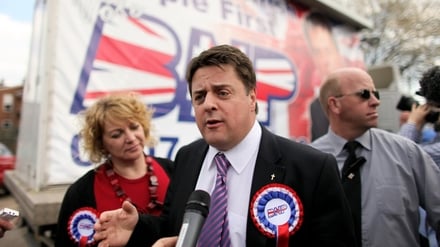
The BNP is a far-right political party, which aims to defend the British people from the threats of globalisation and mass immigration.
It was founded in 1982 by John Tyndall, a co-founder of the National Front, who led the BNP until 1999.
The party has since been led by Cambridge law graduate Nick Griffin.
In the 2005 UK Westminster election, the BNP fielded 119 candidates and won 192,850 votes, a significant increase from the 47,129 votes it received in 2001.
The party's greatest electoral achievement came in the 2009 European election when it won its first two seats. It also won three councillor seats in the local elections held on the same day.
Campaigning against the 'immigration invasion' and the Global Warming 'conspiracy', the party ran 300 candidates across the UK in the 2010 Westminster election. BNP took 1.9% of the vote, but did not get any MP elected.
The party is now running three candidates in the 2011 Assembly Elections, its first candidates in a Northern election.
The party is also running four candidates in the local council elections in Northern Ireland.

